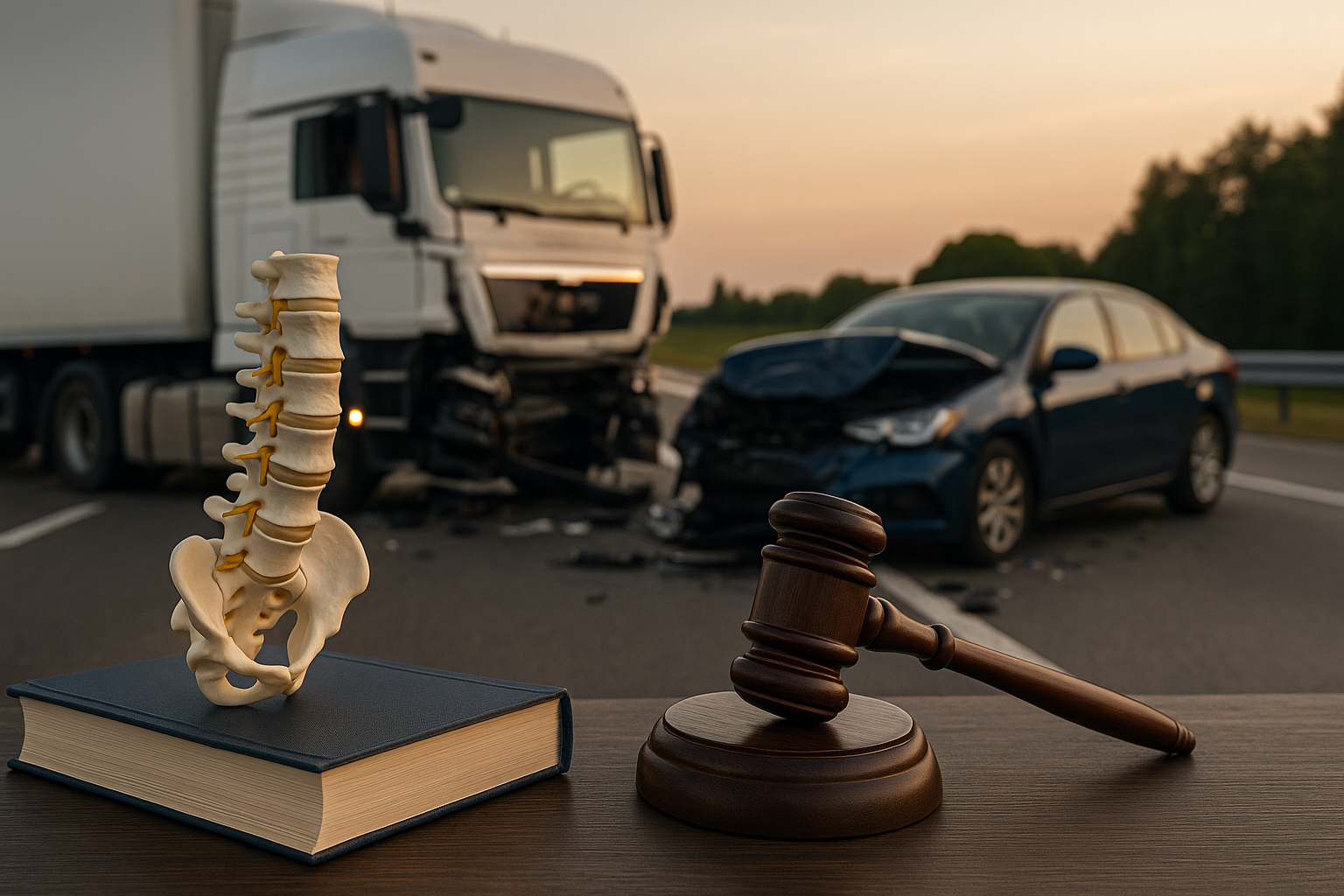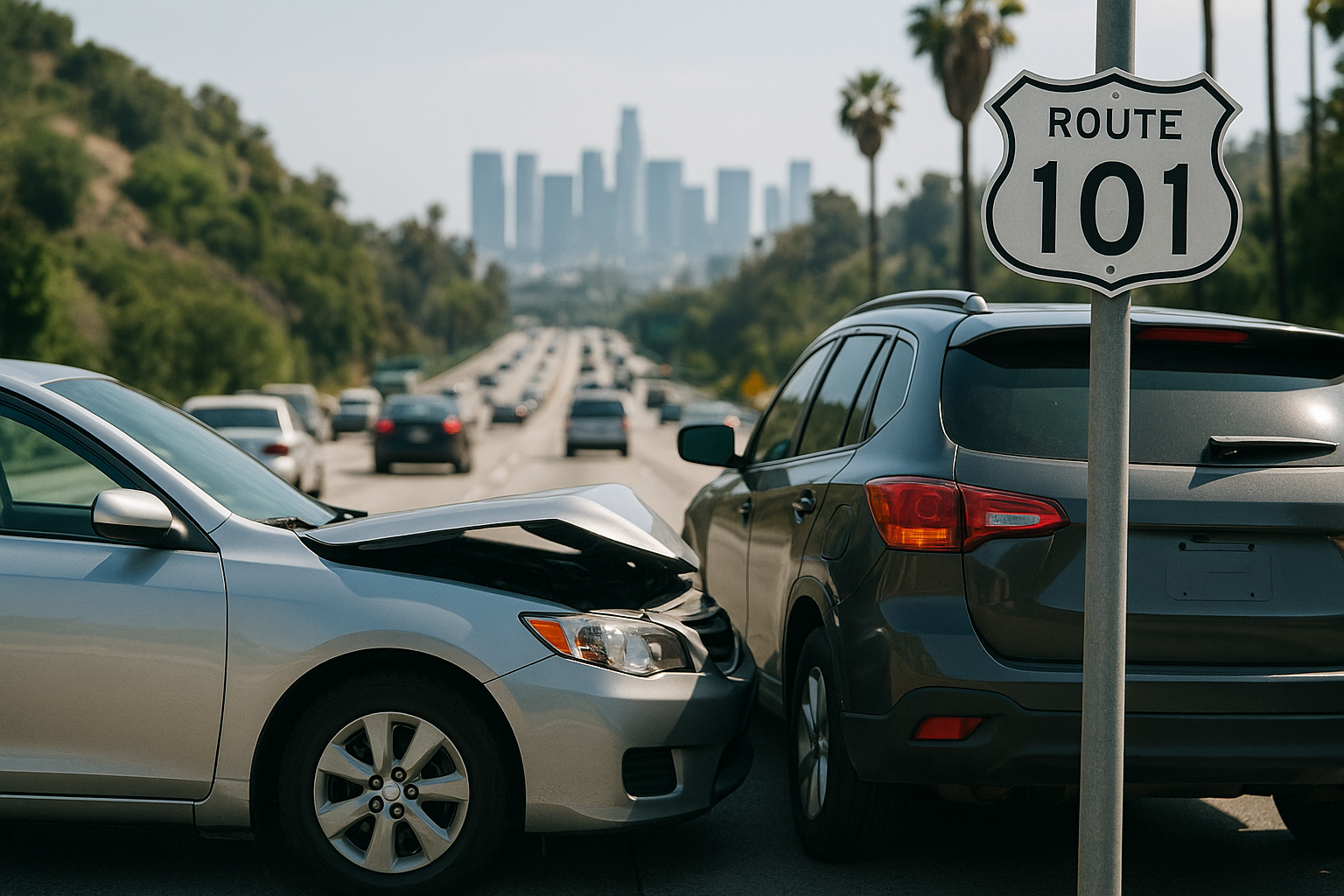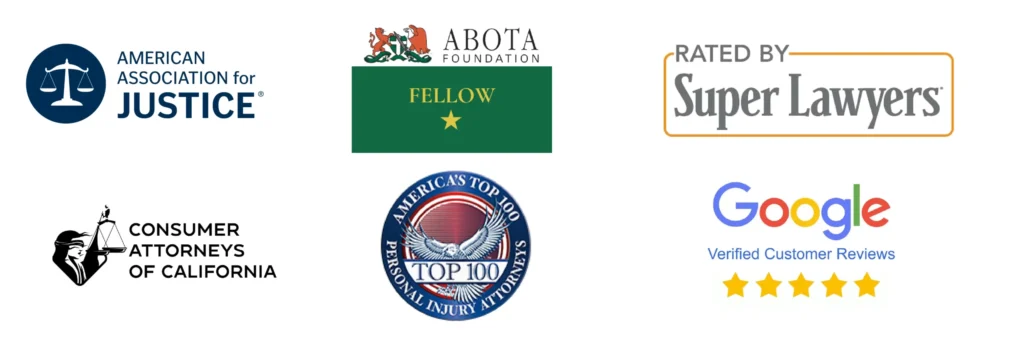A trucking accident on Interstate 5 near Stockton can change your life in seconds. Victims often face severe spinal cord injuries that lead to paralysis, lifelong pain, and staggering medical costs. Understanding your legal options after such a crash is vital for securing the compensation you deserve.
How do spinal cord injuries happen in trucking accidents?
Spinal cord injuries occur when a sudden force damages the spinal column or surrounding nerves. In trucking collisions, the immense size and weight of commercial vehicles magnify the impact, even at moderate speeds. Victims may suffer fractures, compression, or dislocation of vertebrae, leading to partial or total loss of mobility.
Common causes of spinal injuries in I-5 trucking crashes include:
- Rear-end collisions caused by distracted or fatigued truck drivers
- Jackknife or rollover incidents on tight turns or high-speed lanes
- Cargo shifts or mechanical failures leading to loss of control
Each scenario poses unique medical and legal challenges, requiring thorough investigation and expert testimony.
What are the types of spinal cord injuries?
Spinal injuries vary depending on the part of the spine affected and the severity of the damage. Generally, doctors classify these injuries as complete or incomplete.
| Type of Injury | Description | Common Outcomes |
|---|---|---|
| Complete | Full loss of motor and sensory function below the injury | Paralysis, loss of bladder/bowel control |
| Incomplete | Partial loss of motor or sensory function | Limited movement or sensation retained |
| Compression | Pressure on the spinal cord due to fractured vertebrae | Pain, weakness, or tingling sensations |
Understanding your medical diagnosis helps determine the extent of your compensation claim.
Steps to take after a trucking accident on I-5
Taking quick, organized action after a trucking crash can protect your health and strengthen your legal claim. Follow these essential steps:
- Get medical help immediately: Even minor back or neck pain may signal spinal trauma. Always call 911 and let paramedics assess your condition.
- Report the accident to authorities: Request that law enforcement document the crash scene and create an official police report.
- Document everything you can: Take photos or videos of the vehicles, road conditions, skid marks, and visible injuries.
- Exchange information: Collect the truck driver’s license, insurance, and employer details, as well as contact info from any witnesses.
- Avoid making statements: Do not admit fault or give recorded statements to insurance adjusters without legal advice.
- Preserve all records: Keep copies of medical reports, repair estimates, and communication with insurers.
- Contact a lawyer: Reach out to an experienced trucking accident attorney right away to protect your rights and start investigating your case.
Who can be held liable for a spinal cord injury?
Determining liability in a trucking accident is complex. Multiple parties may share responsibility depending on what caused the crash.
Potentially liable parties include:
- Truck driver: For negligence, speeding, or fatigue violations
- Trucking company: For poor maintenance, overworked drivers, or unsafe policies
- Cargo loaders or manufacturers: For improperly secured freight or defective parts
A skilled personal injury lawyer will investigate logbooks, maintenance records, and electronic control module (ECM) data to identify every liable party.
How do spinal cord injuries affect long-term life and finances?
Spinal cord injuries often lead to major lifestyle adjustments and significant financial burdens. Victims may face months or years of rehabilitation, adaptive equipment, and home modifications. In severe cases, lifelong nursing or attendant care may be required.
The costs can include:
- Emergency surgery and hospital stays
- Physical and occupational therapy
- Loss of earning capacity or permanent disability
- Psychological counseling for trauma and adjustment
Beyond the medical bills, victims often struggle with loss of independence and emotional distress that affect their families as well.
What compensation can you claim after a spinal injury?
Victims of trucking accidents can pursue various forms of compensation depending on the extent of injury and liability. Compensation generally falls into economic and non-economic damages.
| Category | Examples |
|---|---|
| Economic damages | Medical expenses, future treatment, lost wages |
| Non-economic damages | Pain and suffering, emotional distress, loss of enjoyment of life |
| Punitive damages | In rare cases, for reckless or willful misconduct by the driver or company |
An experienced attorney will work with medical and financial experts to estimate a full and fair settlement amount.
What laws apply to trucking accidents near Stockton?
California and federal laws regulate the trucking industry, and both play a key role in personal injury claims. The Federal Motor Carrier Safety Administration (FMCSA) sets strict rules on driver hours, vehicle inspections, and cargo weight. Violations can strengthen your case for negligence.
In addition, California’s comparative fault rule allows victims to recover damages even if they were partially at fault. For example, if you are found 20% responsible, you can still collect 80% of your total damages.
How long do you have to file a claim?
Under California law, the statute of limitations for personal injury claims is two years from the date of the accident. However, trucking cases require time to gather records, medical opinions, and expert reports. Filing early gives your legal team more leverage to build a strong case.
Certain exceptions may apply, such as when government vehicles are involved or when the injury was discovered later. Always consult an attorney immediately to confirm your filing deadline.
How Knapp Moss can help after a spinal cord injury on I-5
At Knapp Moss, we understand the life-altering consequences of spinal injuries. Our legal team combines deep experience in California trucking accident litigation with compassion for our clients’ recovery journey. We handle every aspect — from evidence collection to negotiations and courtroom representation — so you can focus on healing.
Our attorneys work on a contingency basis, meaning you pay nothing unless we win your case.
Contact Knapp Moss today for a free consultation and learn how we can help secure the justice you deserve.
Frequently Asked Questions
Yes. Under California’s comparative negligence law, you can still recover compensation based on your percentage of fault.
It depends on the severity of your injury, medical costs, and long-term impact. A lawyer can estimate your claim’s value after reviewing evidence.
Typically, the at-fault party’s insurance covers your medical bills. However, your attorney may also coordinate with your health insurance or med-pay coverage.




